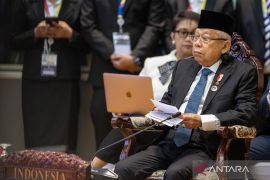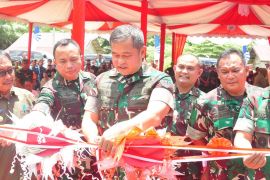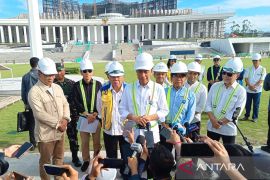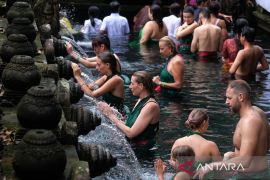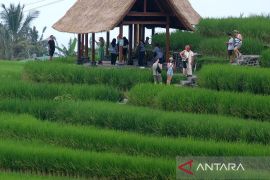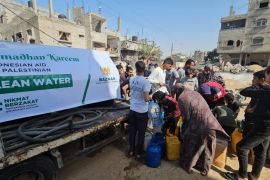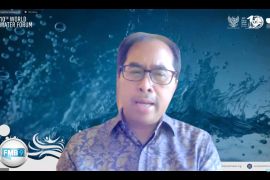Young Indonesian entrepreneurs will therefore focus their attention on tapping the economic potential of the countrys maritime sector. "We will play our roles in the development of the countrys maritime industries," Raditya Priamanaya Djan of the Indonesian Young Entrepreneurs Association (HIPMI) said.
Priamanaya, who attended a regional working meeting of the HIPMI in Riau Islands Province (Kepri) Friday, cited as an example the potential of the Kepri waters which covered 90 percent of the provinces area.
This province had a big potential to develop the maritime sector, particularly the fishery sector, he said.
Moreover, President Joko Widodo (Jokowi) has placed the fishery sector as one of his maritime development priorities, he said. "Kepri has the potential to develop the fishery industry in the era of the ASEAN Economic Community (AEC)," he added.
In the AEC era, HIPMI must create innovations so that it will not be trapped by routine matters that hamper its advancement.
"This is the reason why the HIPMI is encouraging its members to see this sector as an opportunity that could be used to generate national economic growth," Priamanaya said.
So far, the fishery resources of the country have been enjoyed by other countries which tapped or even stole the fish potential from Indonesian waters.
"Every year, we lost Rp300 trillion because Indonesia could not maximally take advantage of this sector. This is a sector that has to be exploited seriously," Priamanaya, who is the secretary of HIPMI, said.
Indonesias inadequate control over its marine wealth has enabled foreign poachers to steal the countrys fish, which, according to FAO, amounts to Rp300 trillion per annum.
Indonesia lost some Rp300 trillion annually to illegal fishing activities, President Joko Widodo, who took over as the seventh president in October, 2014, has claimed.
The irresolute approach of the government has so far allowed some 5,400 illegal vessels to operate in Indonesian waters.
The Marine Affairs and Fisheries (KKP), in its efforts to exploit the fishery potential and increase the countrys fish production, is waging a war against illegal, unreported, and unregulated fishing by sinking a number of foreign vessels found poaching in Indonesia's waters.
The KKP has resolved to develop the fisheries sector and optimally tap its potential in line with President Joko Widodos vision for the maritime sector.
KKP Minister Pudjiastuti is optimistic that Indonesia will be able to increase its fish production by two million tons this year to 26.04 million tons (from about 24 million tons in 2015).
The HIPMI's focus on the maritime sector, fishery in particularly, is in line with the KKPs development program to increase the countrys fishery production.
In order to develop the maritime sector, HIPMI will encourage banks to provide capital to entrepreneurs doing business to exploit the maritime potential maximally.
"Foreign companies came to Indonesia to exploit the maritime sector with strong support of banks. Thus, local banks should also provide strong support for local businesses," he said.
Besides that, HIPMI will also set up networks which will enable entrepreneurs of various regions in Indonesia to build communications so that they can exchange support for their respective businesses.
His organization wanted its members to develop and increase their capacity so that they will be able to boost national economic growth, HIPMI Chairman for Kepri Erwin Aswito said.
"I hope all of us will be able to build advance HIPMI members. We, in Kepri, are actually no longer worried by the competition in the AEC era," he said.
Indonesia needed to develop integrated infrastructure to boost fishery production, Vice President Yusuf Kalla, meanwhile, said last week.
Integrated infrastructure is needed in strategic regions having the fisheries sector, such as the Banda islands in Maluku province.
"Cold storages, fish processing plants, and fishing ports should be built in strategic areas having the fisheries sector," the Vice President remarked during his visit to Banda Neira, Thursday (March 17).
Cold storages, fish processing plants, and fishing ports should be established in these regions to boost the nations fisheries industry, though he added that such forms of infrastructure would be of no use if there was no supply of raw materials and energy, Kalla noted.
While visiting a fish processing plant at the Nusantara fishing port in Ambon, Wednesday, and cold storage in Banda Neira, Thursday, the Vice President received complaints that the supply of skipjack and other species of tuna fish had dropped drastically.
Moreover, two cold storage units in Banda Neira, which the Vice President visited Thursday, had ceased to operate due to shortage in supply.
(A014/INE/O001)
EDITED BY INE
(T.A014/A/KR-BSR/O001)
Reporter: Andi Abdussalam
Editor: Aditia Maruli Radja
Copyright © ANTARA 2016

